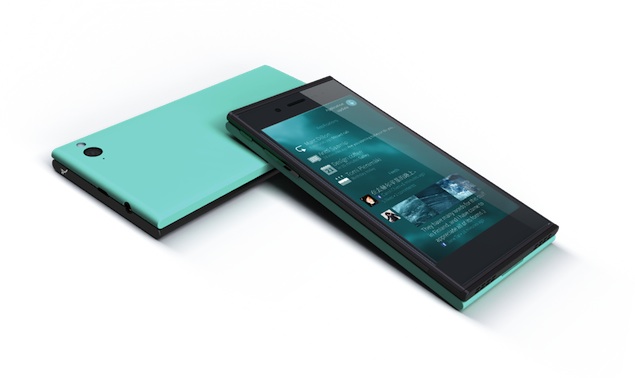Finnish startup Jolla has announced its first smartphone, which shows off its Sailfish OS on a 4.5-inch screen. The device integrates the company's unique back covers with the software, allowing the look to change and new features to be added.
Jolla, which was founded by a former Nokia employees who wanted to continue the development work the Finnish phone maker had done on the MeeGo OS, is with the introduction one big step closer to entering the ultra-competitive smartphone market.
The LTE-smartphone—which is just called Jolla, for now—is powered by a dual-core processor and has an 8-megapixel camera. It also has 16GB of integrated storage which can be expanded using an SD card.
The smartphone has been designed to look like two thin slabs that have been bonded together, and users can change the color of the back one with different snap-on covers. The back cover isn't just about the hardware design. It is integrated with the OS and can be used to add features and change the look, a concept Jolla calls "the other half."
The company's core offering is the Sailfish operating system, which Jolla hopes will lure users away from competing platforms. To help boost the availability of apps, the OS will be able to run Android applications.
The heart of the OS consists of thumbnails of opened applications on the home screen from which users also can access multiple features directly by scrolling from side-to-side or just clicking on them to access the main feature.
The Jolla will start shipping during the fourth quarter and cost €399 ($510) including taxes in the EU. It can be preordered on Jolla's website.
The market for smartphone operating systems will get a lot more crowded this year, as the respective backers of Firefox OS, Ubuntu and Tizen are also expected to launch their first phones. The only thing Jolla has got going for it is its small size, which means it doesn't have to sell many devices to survive, according to Francisco Jeronimo, research director at IDC.
All of the new operating systems will have a very hard time even making a dent in Android and iOS' dominance. Firefox OS and Tizen are expected to have a share of less than 5 percent in five years, according to IDC, which isn't even tracking Ubuntu and Sailfish.
Source
Follow me on twitter for more updates


No comments:
Post a Comment